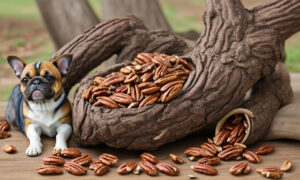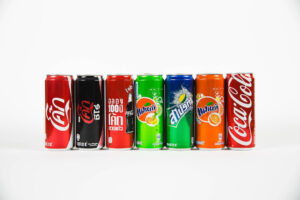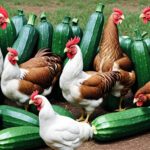When it comes to pampering our furry friends with diverse and nutritious diets, pet owners often ponder about the suitability of various human foods. One such questionable snack is eggshells. They might seem like mere kitchen waste to you, but could they serve as a hidden calcium treasure for your canine companion? Let’s take a closer look at the implications of feeding your dog eggshells and debunk the myths surrounding this unconventional food choice.
Many of us recognize the nutritional value of eggs as a protein-packed meal for our dogs, but the discussion rarely extends to the shell. It’s time to unveil the truth about this often-discarded byproduct and whether it can safely find its way into your dog’s diet.
Exploring the Nutritional Profile of Egg Shells
Before we delve into whether dogs can eat eggshells, understanding their nutritional content is essential. Eggshells are rich in minerals, primarily calcium carbonate, which is crucial for maintaining healthy bones and teeth in dogs. But the wonders don’t stop there; they also contain small but significant amounts of magnesium, fluoride, and other trace elements beneficial for your pet’s health.
Related article; can dogs eat pecans
The Calcium Conundrum: A Bone to Pick
Calcium is not just for strong bones. It’s also vital for your dog’s muscle function, nerve signaling, and blood clotting capabilities. Here’s what you need to know about the role of calcium in your dog’s diet:
Related article; can dogs eat kiwi
- Bone Development: Puppies especially need calcium for growing bones.
- Dental Health: Calcium plays a critical part in keeping your dog’s teeth healthy.
- Enzyme Function: Many enzymatic actions require calcium to work efficiently.
However, more is not always better. An excess of calcium can lead to skeletal problems, especially in larger breeds that grow rapidly. It’s a delicate balance that requires careful consideration.
Related article; can dogs eat cabbage
Can Dogs Safely Consume Egg Shells?
The simple answer is yes, dogs can eat eggshells; however, there are certain precautions you must take to ensure they are safe for consumption:
Related article; can dogs eat watermelon
Preparation is Key: Safe Consumption Practices
To safeguard your dog’s health, eggshells must be prepared correctly:
- Clean Thoroughly: Eggshells should be free from any egg whites or yolks to avoid the risk of salmonella.
- Boil or Bake: Heat treatment kills potential bacteria.
- Grind to a Powder: To prevent choking hazards and aid in digestion, it’s best to grind the eggshells into a fine powder before sprinkling over your dog’s regular food.
Serving Size Matters: Moderation is Crucial
Moderation is key when introducing eggshell powder to your dog’s diet:
- A teaspoon for smaller dogs or puppies could suffice.
- Larger breeds might benefit from a tablespoon.
It’s a wise decision to consult your veterinarian before adding eggshell powder to your dog’s diet to ensure the proper serving size and frequency.
Risks and Considerations in Feeding Egg Shells to Dogs
As with any dietary change, there are risks associated with feeding your dog eggshells. It’s crucial to weigh these potential concerns:
The Potential for Dietary Imbalances
Though eggshells are a calcium-rich addition to your pet’s diet, too much calcium can disrupt the balance of other nutrients, potentially leading to conditions like hypercalcemia. This imbalance could be detrimental to heart health and kidney function.
Choking Hazards and Digestive Issues
Unprepared eggshells can pose a choking hazard or cause intestinal blockages. Ensuring that they are ground into a fine powder can mitigate this risk.
Allergic Reactions and Sensitivities
Just as humans can have allergies, so can dogs. If your dog shows signs of an allergic reaction to eggshells, discontinue use immediately and seek veterinary care.
Signs to Watch For:
- Skin Irritation: Look for itching or rashes.
- Gastrointestinal Upset: This might include vomiting or diarrhea.
- Respiratory Problems: Wheezing or coughing could be a symptom.
By keeping a vigilant eye on your dog’s reaction, you’ll be able to act swiftly should any implications arise.
How to Incorporate Egg Shells into Your Dog’s Diet
If you’ve decided to give eggshells a try, here’s how you can safely incorporate them:
DIY Eggshell Supplement Recipe
Transform eggshells into a homemade supplement with these steps:
- Thoroughly clean and rinse eggshells.
- Bake them at 200°F for approximately 10 minutes to eradicate bacteria.
- Crush or grind the shells into a fine powder.
- Store the eggshell powder in a sealed container to maintain freshness.
Tips for Crafting the Perfect Supplement:
- Quality Counts: Use organic eggs to limit exposure to chemicals and antibiotics.
- Equipment Matters: A coffee grinder or mortar and pestle can achieve a fine, palatable powder.
Creative Ways to Serve Eggshell Powder
Incorporating eggshell powder into your dog’s meals is easy. Here are some suggestions:
- Sprinkle over meals: Use it as a seasoning on their regular food.
- Mix into homemade treats: Bake eggshell powder into dog biscuits or treats.
- Combine with other supplements: If your dog takes other powdered supplements, blending them can simplify your routine.
Dogs and Eggs: A Full Spectrum Overview
While we’ve focused primarily on eggshells, let’s consider the whole egg:
The Benefits and Risks of Feeding Whole Eggs to Dogs
Eggs are hailed as a nearly complete food source, packed with protein and essential amino acids. Feeding your dog cooked eggs can yield numerous health benefits, but there are certain risks as well:
- Biotin Deficiency: Raw egg whites contain avidin, a substance that can lead to biotin deficiencies.
- Cooked vs. Raw: Cooking eggs may be the safer route due to the risk of salmonella in raw eggs.
By considering both the benefits and risks, you can make an informed decision on including whole eggs in your dog’s diet.
Integrating Egg Shells into a Balanced Diet
Food diversity and balance are pillars of canine nutrition. Eggshells, when given appropriately, can be part of this harmony. Remember, each dog is unique; consider your dog’s size, age, activity level, and existing health conditions.
Guidelines for Feeding Eggshells:
- Start Slowly: Introduce eggshells gradually to monitor for any adverse reactions.
- Monitor Health Changes: Keep an eye on your dog’s overall health and stool quality.
- Consultation Matters: Always liaise with your vet, particularly if your dog has pre-existing health conditions.
Parting Thoughts: The Final Verdict on Egg Shells for Dogs
Feeding your dog eggshells can be a beneficial practice when properly executed. Packed with essential minerals, they can bolster your pet’s nutrition, supporting bone health and promoting overall vigor. However, it requires a strategic approach. Armed with the right knowledge and veterinary guidance, eggshells could be a surprise addition paving the way to a healthier, happier pup. senior quotes taylor swift
We’ve sifted through the facts, examined the risks, and provided practical advice on safely introducing eggshells into your dog’s diet. Whether you choose to integrate this unconventional food item or not, the key takeaway is to prioritize your dog’s health through informed dietary choices. After all, a well-nourished dog is a joyful companion for life’s adventures.








[…] Despite these positives, the risks associated with dogs eating plums outweigh the benefits. Related article; can dogs eat egg shells […]
[…] Pomegranates are more than just a tasty fruit; they’re packed with vitamins and minerals beneficial to overall health. They contain: Related article; can dogs eat egg shells […]